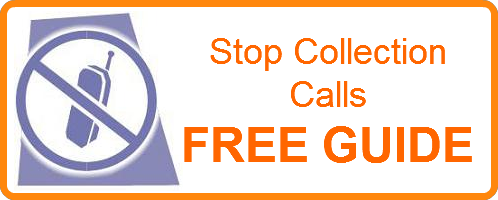Here's some very helpful tips on how to stop the dirty tricks debt collectors use.
Dealing with debt collectors can be very frustrating, especially if you do not know what a debt collector can and cannot legally do!
The Federal Trade Commission acts to enforce the Fair Debt Collection Practices Act when debt collectors violate the law.
The Fair Debt Collection Practices Act - Guide for Consumers, will help you understand your rights and help you deal with debt collectors.
One of the most annoying tactics used by debt collectors is to make numerous calls. Many debt collectors use automated dialers that seem to work around the clock!
Even if you are on the National Do Not Call List, a debt collector can legally call you as you have had a previous business agreement.
But, YOU CAN PUT A STOP TO DEBT COLLECTOR CALLS!
In some cases, a faxed letter will work, but to be sure, writing and sending by registered mail is much more effective!
Although a debt collector can call your family, friends and in some cases a neighbor, THEY CANNOT DISCUSS YOUR DEBT. A debt collector can only call them to see if they can find our your phone number or where you live.
A debt collector cannot call you at work if your employer doesn't allow you to receive calls at work. Many times you can verbally demand that the debt collector stop calling your place of employment and that will do it. If not, write a letter.
A debt collector cannot make false statements, use obscene language, make threats of violence on the phone or in writing!
Although most debt collectors act in a semi-professional manner, there are some that will try any and all dirty tricks in order to collect their commission if they get you to pay up!
One of the most used dirty tricks that a debt collector uses is sending a "legal looking letter" that seems to indicate that you are being sued!
The Fair Debt Collection Practices Act clearly prohibits a debt collector, and even debt collectors that are attorneys, from threatening to take legal action if in fact they do not intend to.
For example, a debt collector will send a letter that says something like:
"At this time, this office has not taken any legal action, but...." or...
"If you do not contact this office within 20 days from the date it was mailed, this account will be turned over to our legal department for review."
If you received (or have received) a letter like that, then you know it is scarry!
Remember, a debt collector cannot take "legal action" until they have had an attorney, licensed in your state, prepare and submit a "claim" to your county courthouse.
Then, a SUMMONS is prepared and delivered to you.
If you do not act on the summons, then they would most likely be awarded a DEFAULT JUDGMENT.
After the judgment has been awarded, they can now take legal action such as:
- Wage Garnishment
- Bank Levy
- Place a lien on your home
The point is that just because a debt collector's letter sounds like they have taken legal action, doesn't necessarily mean that they have.
Finally, a debt collector usually has the ability to accept a lesser amount than the full amount that is due. This is called a DEBT SETTLEMENT.
Debt collectors are paid to collect as much money from you as possible! They may tell you that their client (the original creditor) will not accept a reduction of the balance or may say that they will only accept a very small reduction.
A consumer that has not had the experience of dealing with professional debt collectors can be intimidated and may pay much more than is necessary to settle the debt.
We have helped hundreds of clients settle debts at 50% or below for many years.
Click here for ACTUAL SETTLEMENT EXAMPLES.
Don't fall for the dirty tricks of debt collectors!




 All too often, individuals who are struggling with their debt fall victim to debt collector tricks and scams—all because they aren't aware of the laws that exist to protect them. The Fair Debt Collection Practices Act (FDCPA) was enacted to protect people from the unfair, deceptive and abusive tactics that many companies were using in their attempt to collect outstanding debts. Under this law, you have specific rights that protect you from the worst debt collector tricks.
All too often, individuals who are struggling with their debt fall victim to debt collector tricks and scams—all because they aren't aware of the laws that exist to protect them. The Fair Debt Collection Practices Act (FDCPA) was enacted to protect people from the unfair, deceptive and abusive tactics that many companies were using in their attempt to collect outstanding debts. Under this law, you have specific rights that protect you from the worst debt collector tricks. 


